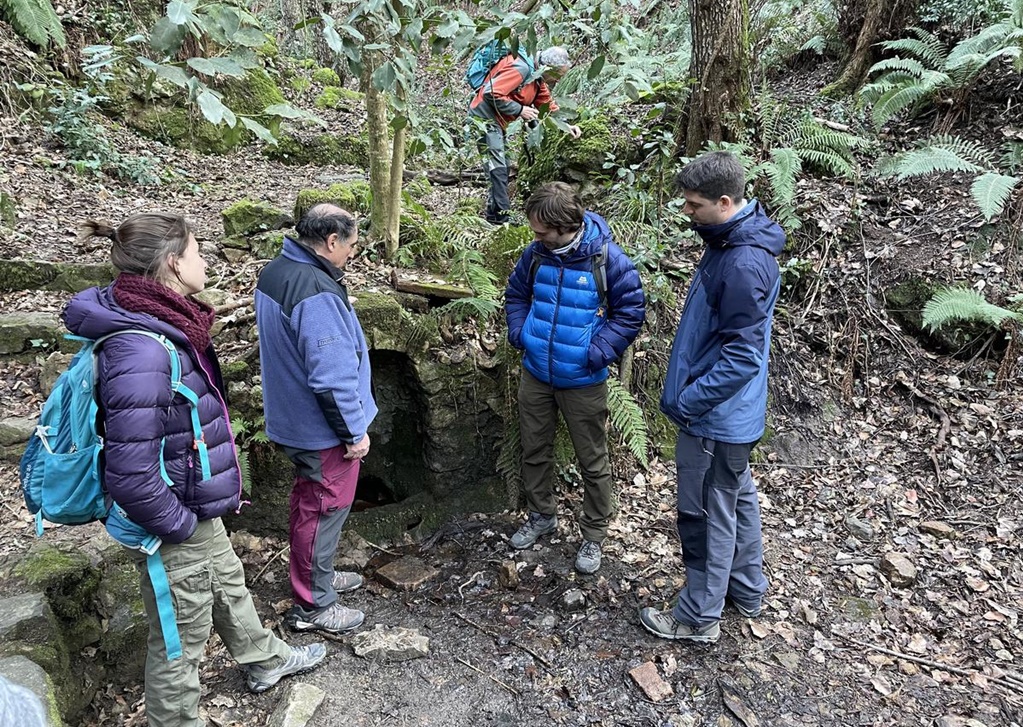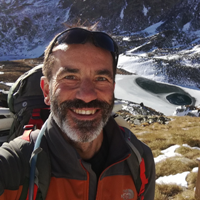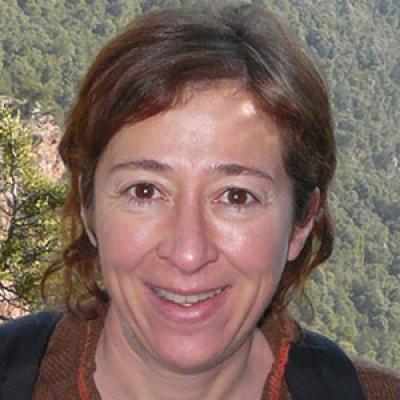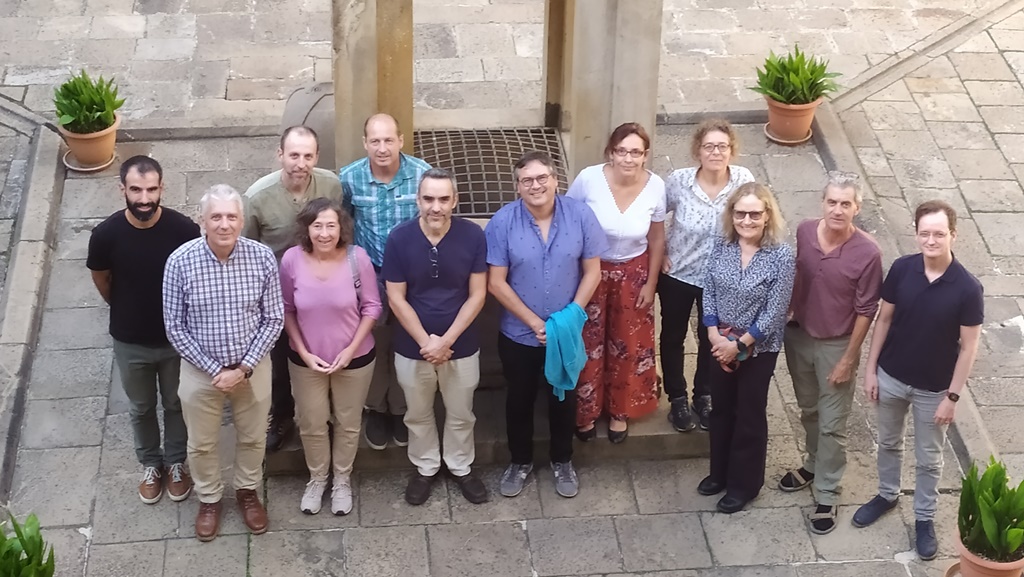Promoting cutting-edge ecology through the 3rd CREAF Synthesis Actions
Fontinal ecosystems in the Mediterranean region, the natural capital of mountain regions and the maladaptation of forest species in a context of climate change are the areas of research addressed in the 3rd Synthesis Action del CREAF. The three seminars in this latest edition have been designed by several researchers from the centre, in collaboration with colleagues from other organisations and universities, both national and international. The proposal seeks to boost innovation through interdisciplinary and wide-ranging contributions, to share, discuss and advance cutting-edge ecological issues. As in the case of competitive calls, proposals submitted to the Synthesis Actions are evaluated by a committee.
The Synthesis Actions seek to drive innovation through interdisciplinary contributions to pool, discuss and advance cutting-edge ecology research.
The proposal is an opportunity that CREAF representatives value from complementary perspectives. The team led by Marcos Fernández-Martínez and Estela Romero stresses that the seminar has enabled them to contribute "new lines of research to be addressed". The discussion group convened by Bernat Claramunt refers to a before and after: "thanks to the Synthesis Action we will create a working group within the European network NEMOR and in 2024 a doctoral thesis on the valuation of natural capital in mountain areas will begin". José Alberto Ramírez-Valiente and Maria Mayol, representatives of the last seminar of this call, agree in speaking of opportunity Ramírez refers to it as "a unique opportunity to bring together international experts in genomics, quantitative genetics, ecophysiology, demographic modelling and dendroecology", while Mayol speaks of it as "a great opportunity to combine different perspectives to evaluate the possible maladaptation of forest trees to climate in the near future".

In chronological order of the seminars, Marcos Fernández-Martínez (CREAF) and Estela Romero (CREAF) organised the meeting on Mediterranean fontinal ecosystems. On the other hand, Bernat Claramunt (CREAF-UAB), Anaïs Jolivet (PhD), Joan Pino (CREAF-UAB), Joan Rabassa and Anna Zango have convened the meeting on the natural capital of mountain areas. And the seminar on maladaptation of forests to climate change has been promoted by the international group of researchers comprising Juliette Archambeau (UKCEH), Maria Mayol (CREAF-UAB), José Alberto Ramírez-Valiente (CREAF), Miquel Riba (CREAF-UAB) and Juan José Robledo-Arnuncio (ICIFOR-INIA).
Springs and biodiversity
Marcos Fernández-Martínez and Estela Romero's scientific proposal focuses on Mediterranean springs as a critical point of biodiversity threatened by climate change, which has allowed them to "collaborate with excellent scientific voices", as they explain. Therefore, thanks to the Synthesis Action they have organised, a diverse scientific team has described the functioning of Mediterranean springs and their characteristics, studied the main groups of biodiversity that coexist, and identified the impacts of global change that affect them. Marcos Fernández evaluates it as "a very positive experience, because we have promoted research that began 10 years ago on the springs of Catalonia". Estela Romero points out the continuity of her professional link with blue and turquoise waters, and explains that the seminar has allowed her "to study the riverbank and the interface with groundwater, one of the parts of the aquatic continuum that I had not had access to".

The Synthesis Action has allowed us to collaborate with excellent scientific voices to promote a research started 10 years ago on the sources of Catalonia
The resulting work of the seminar aims to inform policy decision-making and land management to preserve these ecosystems, which are also indicators of the nutrient legacy of groundwater. "We bring new ideas to improve our knowledge of fontinal ecosystems, combining biogeochemistry with biodiversity aspects," they say.
The team is made up of 15 scientists and naturalists at different professional stages (predoctoral, postdoctoral and senior researchers or professors). Apart from CREAF specialists, researchers from IRTA, the Institute of the Sea and Atmosphere of Portugal, BioSciCat, the Catalan Institution of Natural History and the universities of Bologna, Zurich (of applied sciences, ZHAW), Vigo, Cantabria, Murcia and Barcelona have also taken part.
The natural capital of mountain areas
Thanks to the Synthesis Actions, a working group has been created in the European NEMOR network and a doctoral thesis on the natural capital of mountain areas will be started in 2024.
Mountain areas are the scientific setting for the second group involved in the Synthesis Actions, which seeks to identify their natural capital, including land, forests, fossil fuels, minerals, fisheries and all their natural resources. At CREAF, Bernat Claramunt, Anaïs Jolivet, Joan Pino, Joan Rabassa and Anna Zango are the driving forces behind the seminar, which has studied the natural capital of these areas, which are home to most of the sites in the European Natura 2000 network and which provide important goods and services to society Therefore, their joint work aims to provide rigorous information to inform policy decisions.

Thanks to the Synthesis Actions, a working group has been created in the European NEMOR network and a doctoral thesis on the natural capital of mountain areas will be started in 2024.
The project proposes to draw up a working protocol for assessing the natural capital of mountain regions, to publish its research in specialist journals, to promote new collaborations and to strengthen CREAF's leadership in this scientific field. In addition to CREAF representatives, the team is made up of specialists from Alpina Carpatica (Romania), Bulgarian Academy of Sciences (Bulgaria), Inland Norway University of Applied Sciences (Norway), National Center for Scientific Research (Greece), Norwegian Institute for Nature Research (Norway), Observatoire Midi Pyrénées (France) and the Pyrenean Observatory of Climate Change (Spain).
Providing water, ensuring biodiversity and facilitating the development of a sustainable socio-economic environment are some of the benefits provided by mountain areas, which today are under great human pressure and undergoing rapid transformation in which climate change plays a key role. Among others, the regression of glaciers across Europe, one of the dramatic effects of climate change on mountains, is evident.
Forest species in a new scenario
The possible lack of adaptation to climate change of the main forest species is the focus of the third seminar of this third call, led by Juliette Archambeau (UKCEH), Maria Mayol (CREAF-UAB), José Alberto Ramírez-Valiente (CREAF), Miquel Riba (CREAF-UAB) and Juan José Robledo (ICIFOR-INIA). The objectives of the third seminar are, on the one hand, to identify the gaps in knowledge and the limitations of current methodologies to assess the maladaptation of forest species to climate change and, on the other hand, to create a practical protocol to assess and monitor this risk. As a result of the seminar, the team involved proposes to produce a scientific article based on the discussions generated during the workshop, as well as a protocol aimed at professionals with political and forest management responsibilities.

Discussions have focused on problematic issues, such as assessing the uncertainty in predictions about maladaptation of forest stands, as well as the need to validate with complementary methods and to define different contexts and management objectives.
The challenge is the complexity that science faces in assessing maladaptation. According to José Alberto Ramírez-Valiente, "until now, studies on the lack of adaptation to the environment have been theoretical in nature and have given a partial vision". That is why, with the Synthesis Action proposal, the team seeks to "integrate the knowledge generated by different disciplines and develop a work route that addresses the study of vulnerability to climate change from an integral and management-oriented perspective". In particular, as researcher Maria Mayol explains, "the discussions generated at the seminar focused on problematic issues, such as assessing uncertainty in predictions of maladaptation, as well as the need to validate with complementary methods and to define different contexts and management objectives".
The meeting brought together experts from the University of British Columbia (Canada), INRAE-University of Burdeaux and the University of Grenoble Alpes (both France), the University of Minnesota (USA), the WSL Swiss Federal Research Institute (Switzerland), the University of Oxford (UK), the Universidad Rey Juan Carlos and the Centro de Capacitación y Experimentación Forestal de Cazorla (both Spain).

The Synthesis Actions are a CREAF initiative coordinated by the centre's researcher Maurizio Mencuccini. They are based on working sessions between national and international colleagues, aimed at strengthening scientific collaboration and the exchange of knowledge. As in the case of competitive calls, the proposals presented in the Synthesis Actions are evaluated by a committee.







